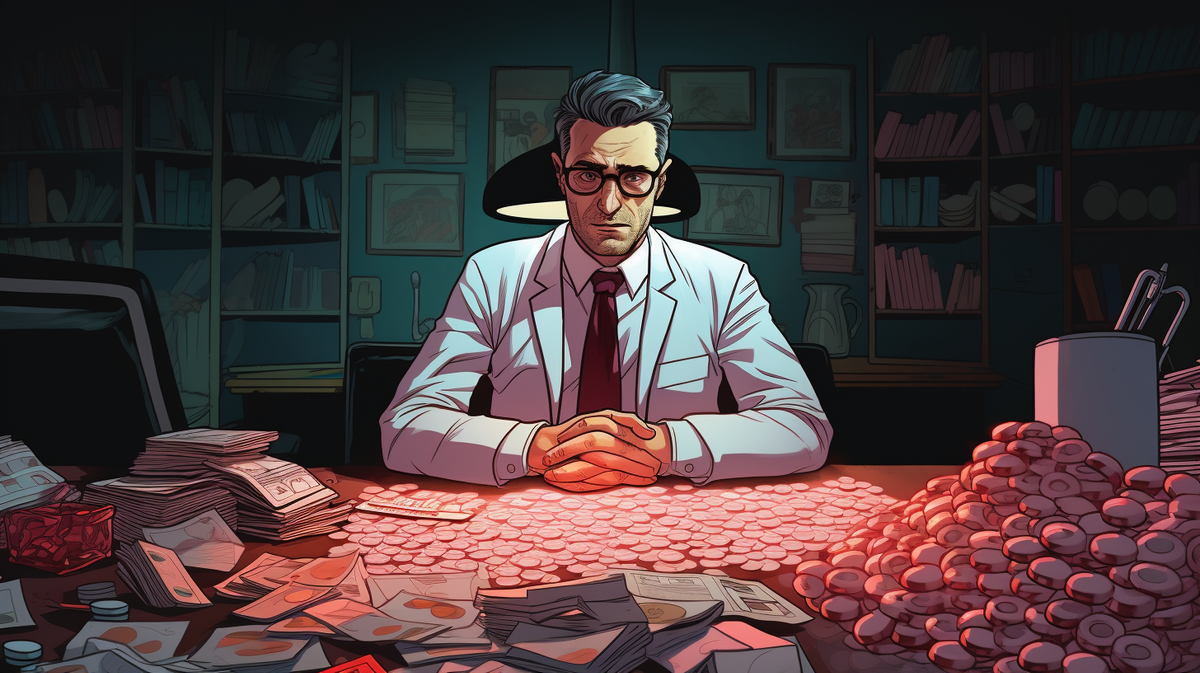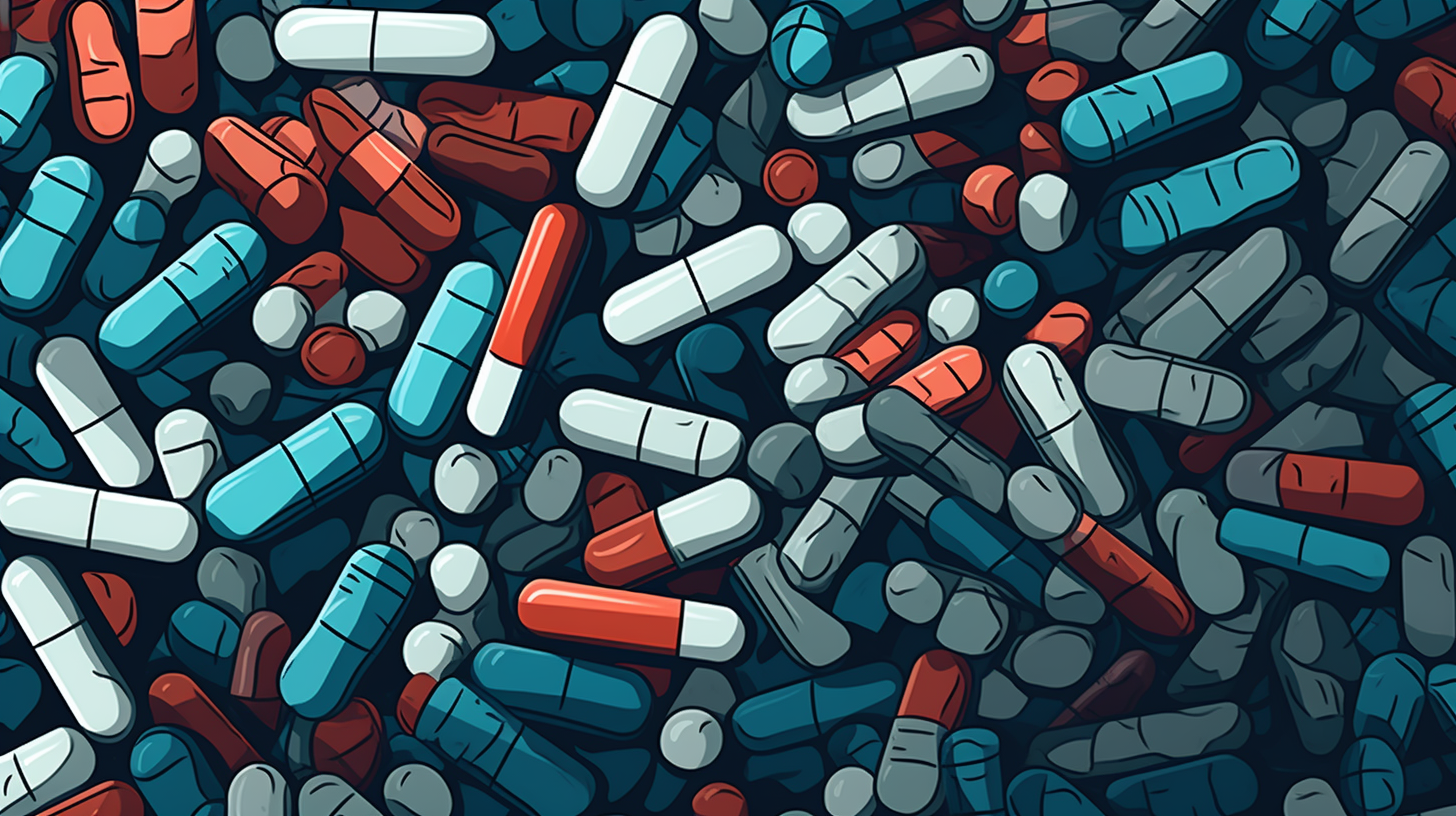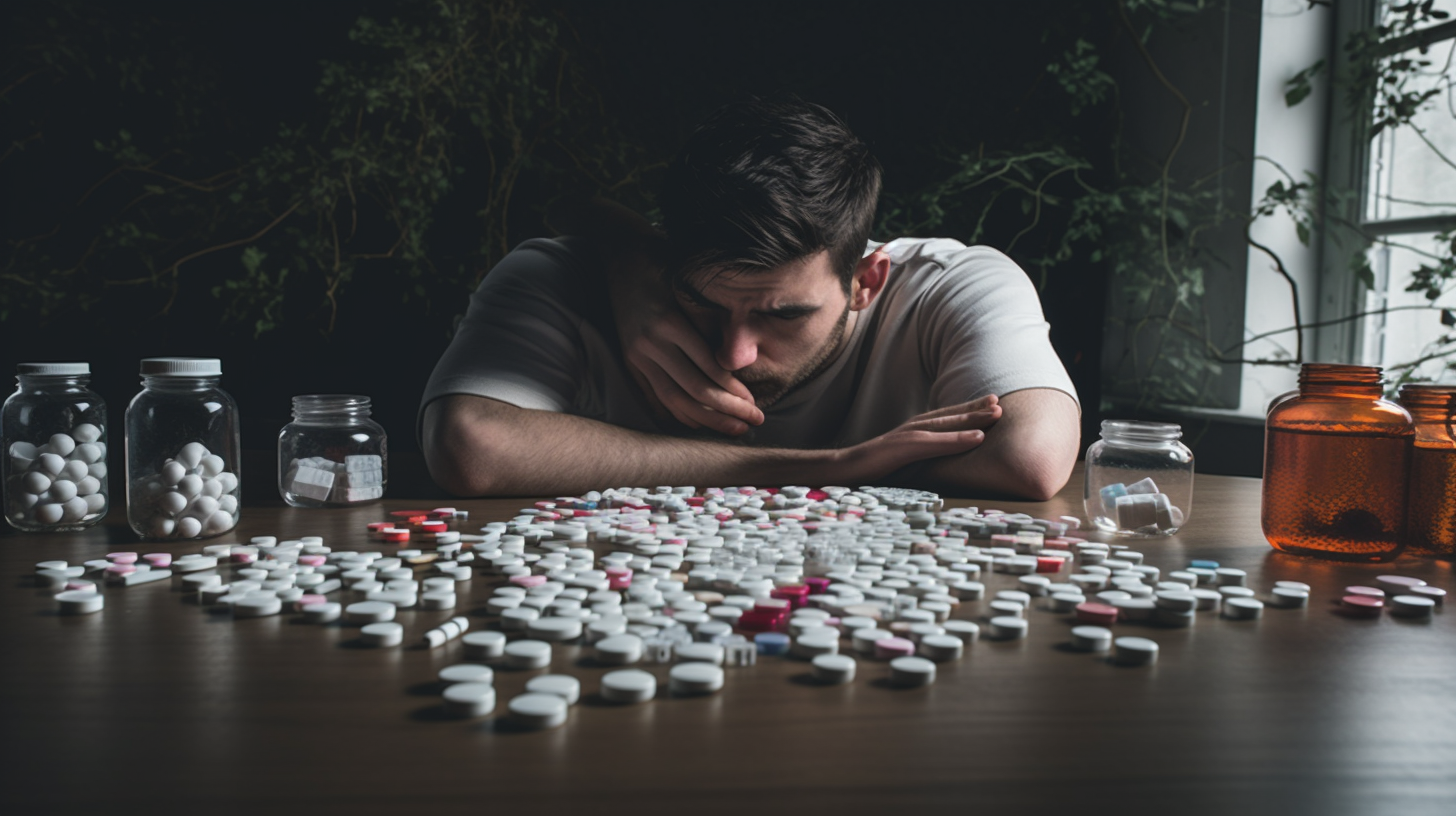What happens when big pharma lies about its drugs 💊💉

Over on Netflix, there’s a fantastic new drama series called Painkiller - based on the brilliant book Empire of Pain. It tracks the story of how the opioid epidemic took hold of America, and how the Sackler family was instrumental in bringing about the healthcare crisis.
One of the most startling points - and there are many - in the show was how Oxycontin was approved by regulators. Purdue Pharma, the show alleges, deliberately hid negative studies that showed the drug didn’t last as long as claimed, and was highly addictive. Choosing instead only to publish the small amount of positive research they found.
So, being the annoying, busy-body (former) journalist I am, I got curious about whether there was the same foul play going on over in mental health.
The TL:DR? Yes, makers of antidepressants and other mental health-related drugs have repeatedly lied about the benefits, the side effects and been caught rebranding drugs to sell to new customers. And I’m going to tell you about them.
I’ve picked three, but there are a lot. Like, almost too many.
Seroquel was prescribed using “false or misleading information” 😲

Seroquel, made by pharma giant AstraZeneca, was approved in 1997 to treat schizophrenia. But, like in Painkiller, the company lobbied healthcare professionals to prescribe it for other things. Things like insomnia, post-traumatic stress disorder and agitation in patients with dementia. And AstraZeneca was wildly successful - it made billions in profit. But it also killed a lot of people.
Medical experts began studying the drug and found it can cause diabetes, heart arrhythmia, and potentially irreversible movement disorders - but it continued to be prescribed to many Americans who are only seeking a good night’s sleep or less anxiety by day.
A Washington Post analysis found about 20,000 cases where Seroquel or its generic equivalent, quetiapine, was listed as the primary or secondary suspect in an adverse event. That included 1,754 deaths in which they were the primary suspect plus 2,309 deaths in which they were a secondary suspect. Overall, 93 percent were apparently the result of off-label prescribing of the drug.
AstraZeneca settled the lawsuit out of court - and it’s still available today.
GlaxoSmithKline buried negative research on Paxil (in the US) and Seroxat (in the UK) to get it approved 🗂️

GlaxoSmithKline developed an anti-depression drug for adolescents called Paxil or Seroxat (depending on where you are). It claimed it could radically help improve the lives of young people if taken, and showed the regulator its results. Or rather, it showed some of the results.
It was later found GSK illegally marketed Paxil to children, including helping to publish a medical journal article that misreported data from a clinical trial. The drug maker also attempted to bribe doctors to prescribe the antidepressant to children as an off-label treatment for depression and anxiety. Oh, and it caused birth defects in pregnant women, created sizeable withdrawal symptoms, and led many people to suicide.
In 2012, GSK agreed to plead guilty and pay $3 billion to resolve criminal and civil liability for promoting Paxil and other prescription drugs for unapproved uses and failing to report safety data about the medications.
Eli Lilly secretly rebranded Prozac to give to women with premenstrual mental health issues 👩

Eli Lilly is a pharmaceutical giant that makes Sarafem. The pill, a pretty pink and lavender shell, was designed, says Eli Lilly, as a drug designed to treat what it calls “premenstrual disorder”.
I’m putting that bit in quotes because there is a lot of debate about this idea. For many people, myself included, the experience of women and their health is too often pathologised and labeled as them being “broken” or “faulty” rather than perfectly normal and something to be supported and understood.
Eli Lilly spent $30 million advertising this wonder drug, teaming up with doctors, gynecologists, and psychologists to help spread the word. Sound familiar? If you’ve watched Painkiller it will.
Now here comes the interesting bit. What Eli Lilly concealed from the millions of women taking the pill is that the pill is actually Prozac. Chemically, Sarafem and Prozac are exactly the same. Thousands of women had, without their knowledge, been prescribed Prozac and didn’t know it.
Why did Eli Lilly change the name? Because, said someone from Eli Lilly, “[Women] wanted a treatment with its own identity. Women do not look at their symptoms as depression, and PMDD is not depression but a separate clinical entity. Prozac is one of the more famous pharmaceutical trademarks and is closely associated with depression.”
What does this all mean? 🤔
If you watched Painkiller to the end, you’ll see how difficult it can be to change the way drugs are made. There are a lot of powerful people with a vested interest in keeping the drugs flowing, no matter what the results say. But there are alternatives.
There is now a healthy amount of research that shows:
- People are far more capable of recovering from a crisis than previously thought - more than half recover within one year without medication.
- Therapy is more effective at helping people than medication.
- Exercise has been proven to be just as effective at alleviating the effects of depression as antidepressants themselves.
Ultimately, your recovery is up to you to decide. One of the most effective treatments for any sort of mental health crisis is the belief that you are getting help. I know that sounds weird but it’s true.
If we believe we are in control of our experience, and able to seek help to solve it, our chances of recovery rise significantly. That’s a pill I’d gladly swallow.
Things we learned this week 🤓
- 👸 It’s official: Disney princesses have an impact on children’s self-esteem
- 💑 Desire is more complicated than we think.
- 🏋️ Weight training can help trauma victims heal.
- 🧑🤝🧑 Helping strangers improves our own well being.
What you should do this week 📅
Become a member! This is the free version of The Brink, but there is a secret, extra special version that has things like:
- 🎤 Podcasts
- 📹 Video
- 🙋 AMAs - Ask me Anything and I’ll make a video an article for you to cut out and keep.
- 💆 Proper, researched ways of alleviating stress and anxiety.
It’s only $5 a month, or $50 for the year, which is 17% less than doing it monthly I’ve been told. What are you waiting for? Head here and click the "subscribe button".
I love you all. 💋





